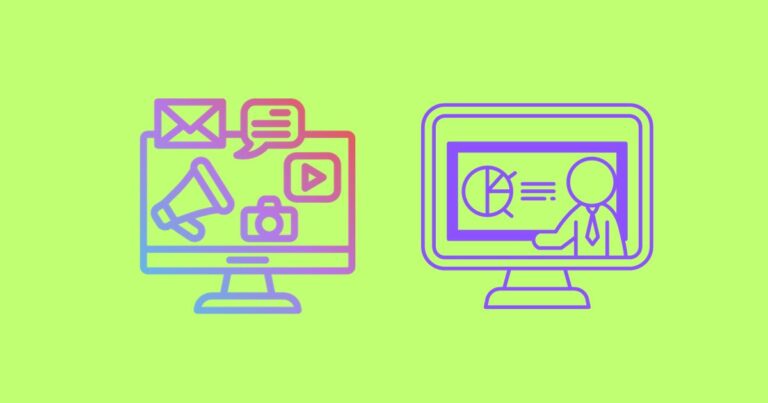The Role of Social Media in Spreading Fake News: A Call for Responsibility
In the contemporary digital landscape, social media platforms have emerged as influential forces that mold public opinion and distribute information. While the internet and social media offer unparalleled opportunities for connectivity and knowledge sharing, they also harbor a darker aspect. among of the most important challenges in our era is the dissemination of fake news, in which social media plays a vital role. This article delves into the effects of fake news, the rise of social media, the unbearable capacity of social media for information dissemination, the dark side of social media, and the responsibilities entailed by various stakeholders in addressing this issue.

Understanding the Impact of Fake News
Fake news encompasses spurious or deceptive information presented as authentic news. It manifests in various forms, including fabricated narratives, conspiracy theories, and misinformation propagated for political or financial motives. The repercussions of fake news are profound, eroding trust in media, distorting public discourse, and even exerting influence on elections and societal beliefs.
The Rise of Social Media
Over the past few decades, social media has grown rapidly and become part of our lives, platforms like Facebook, Twitter(X), Tiktok Instagram, and many more. These platforms are the primary source of news for many individuals. The rapid and facile dissemination of information on social media has revolutionized the consumption and propagation of news.
The Power of Social Media in the Disseminating Information
Social media platforms possess immense capability to distribute information expeditiously to vast audiences. They provide a medium for individuals to share news stories, express opinions, and relate personal experiences. Nevertheless, this power presents a formidable challenge—ensuring the accuracy and reliability of shared information.
The Dark Side of Social Media
While social media provides a platform for a variety of voices and expressions of different people from different parts of the world to come closer to each other it also provides a baseline to spread Disinformation due to the effortless creation and sharing of content, reaching millions in seconds. This is a big problem because fake news can affect individual emotions, biases, and preconceived notions, it can take whole society in darkness, rendering it profoundly persuasive and resistant to debunking.
The Role of Algorithms in Amplifying Fake News
Social media platforms utilize algorithms to curate the content displayed on users’ feeds. These algorithms are crafted to give precedence to content that garners interaction, including likes, comments, and shares. Regrettably, this can perpetuate a vicious cycle where fake news, which elicits strong emotional reactions, garners more promotion, while accurate news may be eclipsed. This algorithmic bias contributes to the spread of Disinformation and exacerbates polarization in public discourse.
The Echo Chamber Phenomenon
Another disconcerting aspect of social media is the formation of echo chambers. These echo chambers develop when someone is primarily exposed to information and viewpoints that agree with their beliefs, further pre-existing convictions and insulating them from refusing perspectives. In this milieu, Disinformation can propagate unchecked, as it reaffirms prevailing biases without facing critical scrutiny.
The Psychological Effects of Fake News
The repercussions of fake news extend beyond immediate consequences on public discourse. Research reveals that consuming misinformation can precipitate cognitive biases, including confirmation bias and the illusory truth effect. Confirmation bias involves interpreting information to validate existing beliefs, whereas the illusory truth effect posits that repeated exposure to false information heightens its perceived credibility.
The Role of Social Media Companies in Mitigating Fake News
Acknowledging the pernicious effects of fake news, social media companies have embarked on efforts to combat this issue. Platforms like Facebook and Twitter have implemented fact-checking mechanisms to flag or remove false information. They have also curtailed the reach of accounts known for disseminating misinformation. Nonetheless, more must be done to effectively counteract the spread of Disinformation on these platforms.
The Imperative of Media Literacy Education
To genuinely confront the scourge of fake news, media literacy education is indispensable. Individuals must be equipped with critical thinking skills that enable them to distinguish between accurate and false information. By nurturing media literacy, individuals can become active participants in verifying news and disseminating trustworthy information, thereby curbing the spread of Disinformation.
The Responsibility of Individuals in Combating Fake News
Each individual bears a responsibility in curbing the proliferation of fake news. It is imperative to verify information before sharing it on social media platforms. Through fact-checking, consulting multiple sources, and critically assessing content credibility, individuals can hinder the further dissemination of false information.
The Role of Government in Regulating Social Media
Governments also play a role in regulating social media platforms. They can enact legislation that holds platforms accountable for the dissemination of fake news and impose penalties on those who intentionally propagate false information. However, striking a balance between regulation and safeguarding freedom of speech is imperative, as excessive regulation may infringe upon individual liberties.
The Role of Fact-Checkers and Journalists
Fact-checkers and journalists occupy pivotal roles in the battle against fake news. Their expertise and dedication in verifying information and reporting accurately are indispensable for upholding the integrity of news. Collaborative efforts among social media platforms, fact-checkers, and journalists can fortify countermeasures against falsehoods.
The Significance of Critical Thinking
Promoting critical thinking skills is paramount in the crusade against fake news. Individuals must question information, seek alternative perspectives, and access reputable sources before forming opinions or disseminating news stories. Critical thinking empowers individuals to scrutinize claims, evaluate evidence, and make well-informed decisions, mitigating the potential impact of Disinformation.
The role of social media in propagating fake news cannot be underestimated. While social media platforms have been instrumental in global connectivity, they also provide fertile soil for the dissemination of false information. To alleviate this predicament, social media companies, individuals, governments, and fact-checkers must collaborate to foster media literacy, regulate social media responsibly, and promote critical thinking. Only through these collective endeavors can we aspire to arrest the dissemination of Disinformation and safeguard the credibility of information in the digital era.
To read more about Sharing fake news on social media Visit
To learn more about social media trends click here






